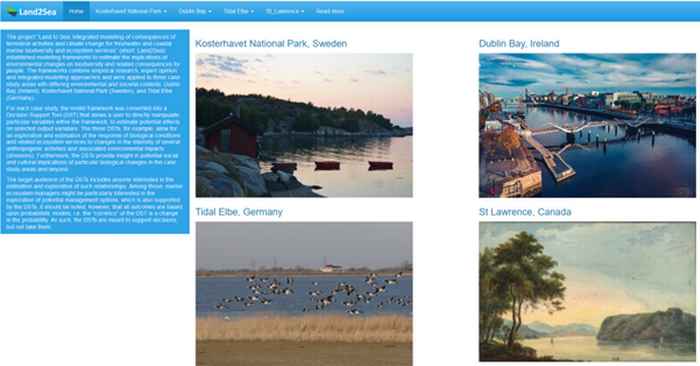IBED Seminar by Prof. Michael Bruen
- Date
- 23 November 2023
- Time
- 16:00
- Location
- Science Park 904
- Room
- L1.01
Speaker
Prof. Michael Bruen (School of Civil Engineering, University College Dublin (UCD), Ireland)
Abstract

The Land2Sea was a research project involving research groups in Ireland, Germany, Sweden, USA and Canada. It was jointly supported by the European Biodiversa Partership and the European Union.
It aimed to Integrate modelling of the consequences of terrestrial activities and climate change for freshwater and coastal marine biodiversity and ecosystem services” and established modelling frameworks to estimate the implications of environmental changes on this biodiversity and the related consequences for people. The frameworks combine empirical research, expert opinion and integrated modelling approaches and were applied to three case study areas with differing environmental and societal contexts: Dublin Bay (Ireland), Kosterhavet National Park (Sweden), and Tidal Elbe (Germany).
For each case study, the model framework was converted into a Decision Support Tool (DST) that allows a user to directly manipulate variables within the framework, to estimate potential effects on selected output variables. These allowed for an exploration and estimation of the response of biological conditions and related ecosystem services to changes in the intensity of several anthropogenic activities and associated environmental impacts (stressors).
The target audience of the DSTs includes anyone interested in the estimation and exploration of such relationships. Among those, marine ecosystem managers might be particularly interested in the exploration of potential management options, which is also supported by the DSTs.
A number of different approaches were tested and the resulting demonstration DST, was based on Bayesian Belief Network (BBN) models and implemented in R and Shiny. In this seminar, we will discuss the reasons for the choice of BBN models for this purpose and will describe the processes, including both data analysis and surveys of expert and stakeholders’ opinions, involved in developing the models’ network structure and parameters.